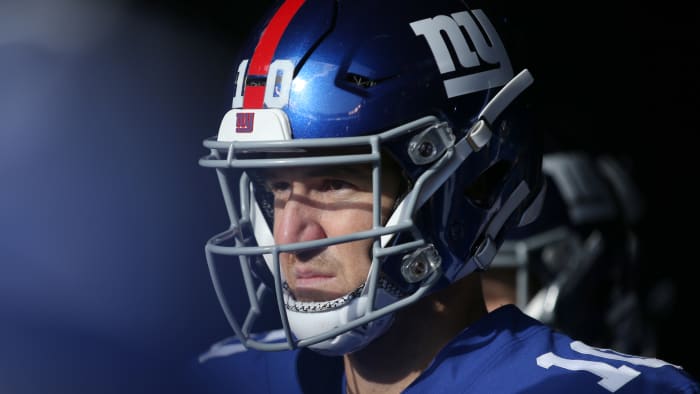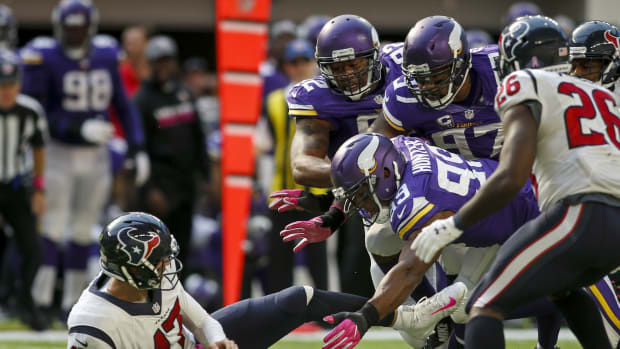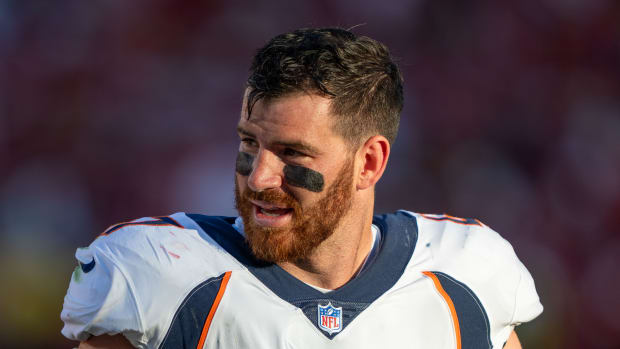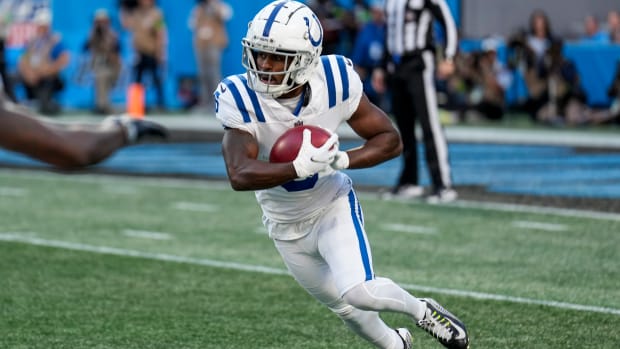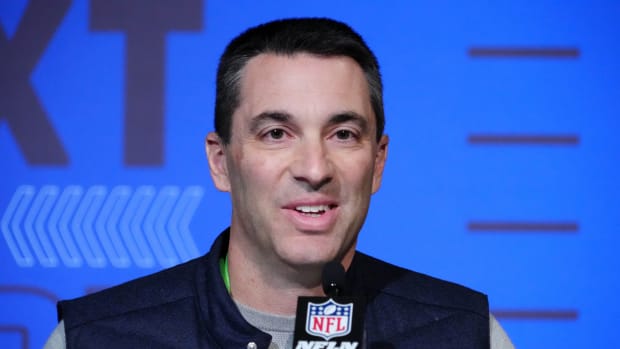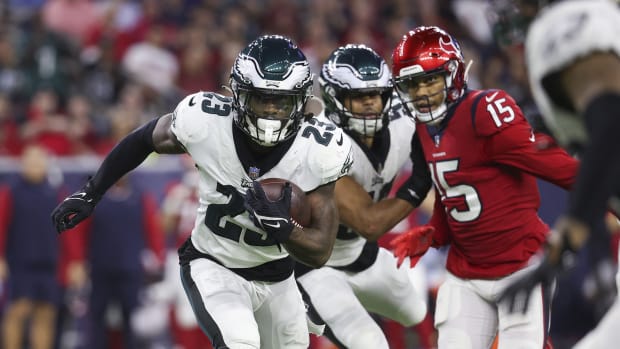Eli Manning Is Going to the Hall of Fame—and That's OK
Those in favor of sanity should take proper precaution: If you think the debate over Eli Manning’s Hall of Fame candidacy hasn’t gotten personal and stupid and reality-averse enough, you have not seen a swath of 24-hour sports networks, Twitter trolls, retired New Jersey–based construction workers on hold at the local talk radio station and drunk Eagles fans with nothing else to talk about.
Please, God, give us an officiating mistake in the Super Bowl to occupy our brain space. Anything but this.
Manning, whose New York Giants announced his intention to retire on Wednesday, will be a Hall of Famer. Trying to stop this is like digging your heels into the backyard, holding on to an oak tree and praying it will prevent the Earth from rotating. There is a greater momentum and power that you may not have an understanding of.
Here’s why that’s O.K.:
The thing to realize about Manning is that he had what is inarguably a great career, one that any player who enters the league with unfairly high expectations should be proud of. He led two different teams to Super Bowls. He delivered, arguably, two of the best throws in championship history.
And he dealt in something that is abstract and difficult to quantify but incredibly powerful: He provided moments.
Have you ever talked to a fan of Manning, or, really any sports fan who does not aspire to create an analytically focused WordPress of some kind? They mention what the player meant to them. They benchmark certain moments of their lives alongside great moments in a player’s career. They talk about them more as a relative with convoluted, hard-to-explain family ties than a person who did a task in exchange for money as part of their favorite team. There is a gigantic difference in the way someone who only looks at Manning through a cold and calculated lens might see him and the way someone who spent every Sunday wearing his jersey at a stadium tailgate might.
Manning was that kind of person and, as much as it pains me to say this as a purist who feels like perfectly contextualized statistics should decide these things, it will be an important part of his career and candidacy. He meant something dearly to Giants fans, who did not discard him after stretches of flummoxing play and who nearly burned MetLife Stadium to the ground when one-time head coach Ben McAdoo had the desire to explore what other quarterback options might be on the roster. He was a tentpole in the locker room during chaos, during a few turbulent coaching changes and during a strange time when maybe everyone around him was still trying to figure out if they wanted him there or not. He did good things in the community.
But mostly, he was the identity of a fan base for nearly two decades.
Manning is currently seventh all time in passing yards and seventh all time in passing touchdowns (he is also 45th in career passer rating and has the highest interception total of any active quarterback). There is a chance those yardage and touchdown numbers will be quickly smashed under the wave of nouveau, Air Raid–type offenses that are popularizing now. There is a chance that, in the absence of another class of quarterbacks like we saw in 2004—people who lasted forever, survived drastic schematic changes and adapted under countless new head coaches—teams will decide to short the position altogether and simply plug in what works in the moment for less money. In that case, maybe some of Manning’s numbers will remain atop the statistical hierarchy (for better and worse) for a long time.
It shouldn’t matter. Trust me, this is not a tirade against the tightening grip of analytics on sports. I think they are a good thing and help us see value more clearly across the board. This is not an advocation for ignorant, anecdotal thinking when it comes to someone’s Hall of Fame candidacy. This is a bad thing and, for years, through certain biases and shortcomings, has left many deserving candidates on the outside looking in.
With Manning, this is simply a recognition that sometimes it’s important to consider what a player on the fence has done on an organic, emotional level for a fan base. In that way, Manning is far more important than others.
































